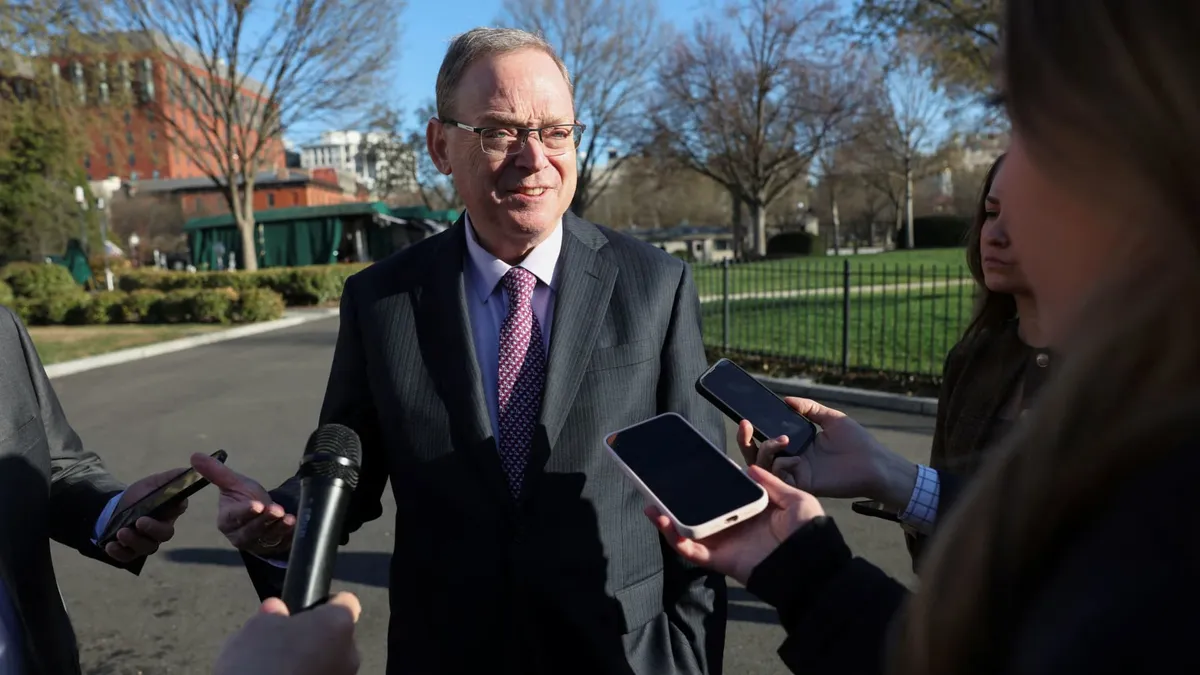
President Donald Trump has made a significant change to his tariff policy, lowering country-specific tariffs to a universal rate of 10% for all trading partners, with the exception of China. As per the latest announcement from the White House, the tariff rate on goods imported from China is set to increase dramatically to 125%, effective immediately. This decision follows a week marked by substantial tariffs that led to considerable market losses, prompting White House advisors to assert that this was part of a pre-existing strategy.
In retaliation, China has announced an 84% tariff on U.S. goods, which will take effect on April 10. Additionally, the Chinese government has issued travel warnings to its citizens regarding visits to the United States. CNBC reporters are providing extensive coverage of these tariff developments from various locations, including Washington D.C., London, Singapore, San Francisco, and Englewood Cliffs, New Jersey.
Kevin Hassett, the director of the U.S. National Economic Council (NEC), emphasized that a 10% universal baseline tariff is likely to remain in place as part of future trade negotiations. He mentioned that it would require an extraordinary deal for President Trump to consider lowering this rate further. Hassett noted that approximately 20 countries are currently pursuing trade agreements with the U.S., and the 90-day timeline for finalizing these deals is feasible.
The recent volatility in the bond market played a role in expediting the decision to pause tariffs, according to Hassett. He explained that while the bond market's fluctuations weren't the sole reason for the tariff pause, they certainly added urgency to the discussions. Following the announcement, long-term Treasury yields decreased, with the 10-year yield trading around 4.308% on Thursday morning.
Chinese Foreign Ministry Spokesperson Lin Jian stated that while China does not seek a trade war, it will not back down if tensions escalate. This statement was made in light of Trump's threats to impose additional tariffs on Chinese imports. The ongoing tariff disputes have raised global concerns about a potential trade war between the U.S. and China, the two largest economies in the world.
In response to Trump's tariff adjustments, European Commission President Ursula von der Leyen announced that the EU would pause the implementation of its retaliatory measures against U.S. goods for a period of 90 days. This decision aligns with the White House's recent changes and aims to provide room for negotiations. Von der Leyen highlighted the importance of clear and predictable trade conditions for both businesses and consumers.
Economists are weighing the potential impact of U.S. tariffs on global economies. For instance, Fred Neumann, chief Asia economist at HSBC, estimates that U.S. tariffs could reduce China's GDP growth by up to 0.5 percentage points. Similarly, German economic institutes have warned that ongoing U.S. tariffs could lower Germany's GDP growth by 0.1 percentage points in both 2025 and 2026.
New Zealand is actively pursuing trade partnerships with other nations, including the EU and various Southeast Asian countries. Prime Minister Christopher Luxon highlighted the benefits of free trade in terms of economic growth and job creation. Following Trump's announcement of a 10% tariff on New Zealand goods, the country is eager to strengthen its trade relations.
Polish Finance Minister Andrzej Domanski welcomed the U.S. tariff suspension as a positive step towards de-escalation. Meanwhile, the ASEAN group has pledged not to retaliate against U.S. tariffs and aims to maintain constructive dialogue with Washington. As discussions continue, many nations are emphasizing the need for stable trade relations to support global economic growth.
As the situation unfolds, the ramifications of Trump's tariff policy will be closely monitored by global markets and governments. The potential for negotiations remains high, and both the U.S. and China are under pressure to find common ground in order to mitigate the adverse effects of ongoing tariff tensions. The international community awaits further developments as trade talks progress.